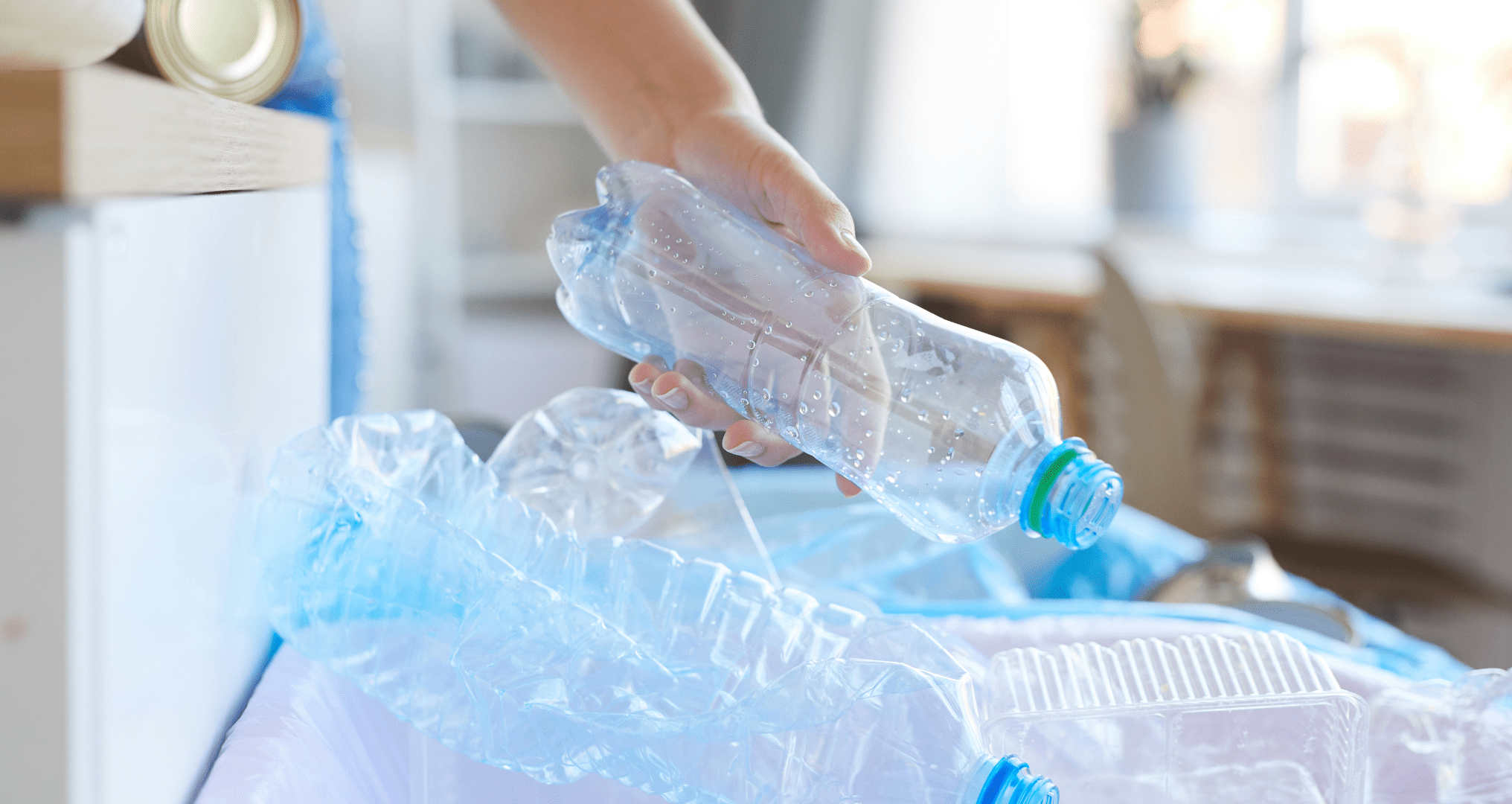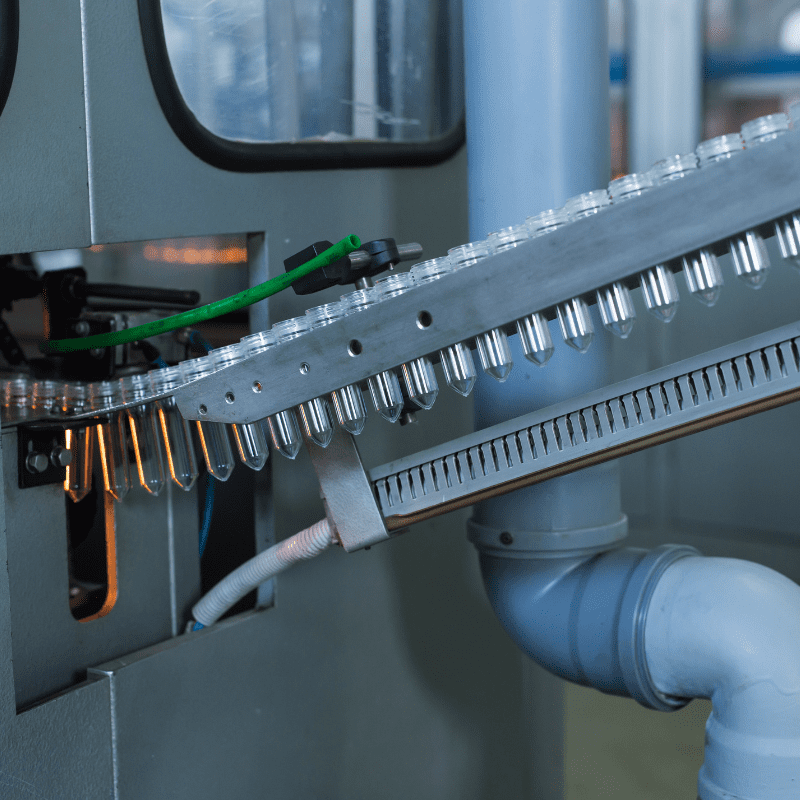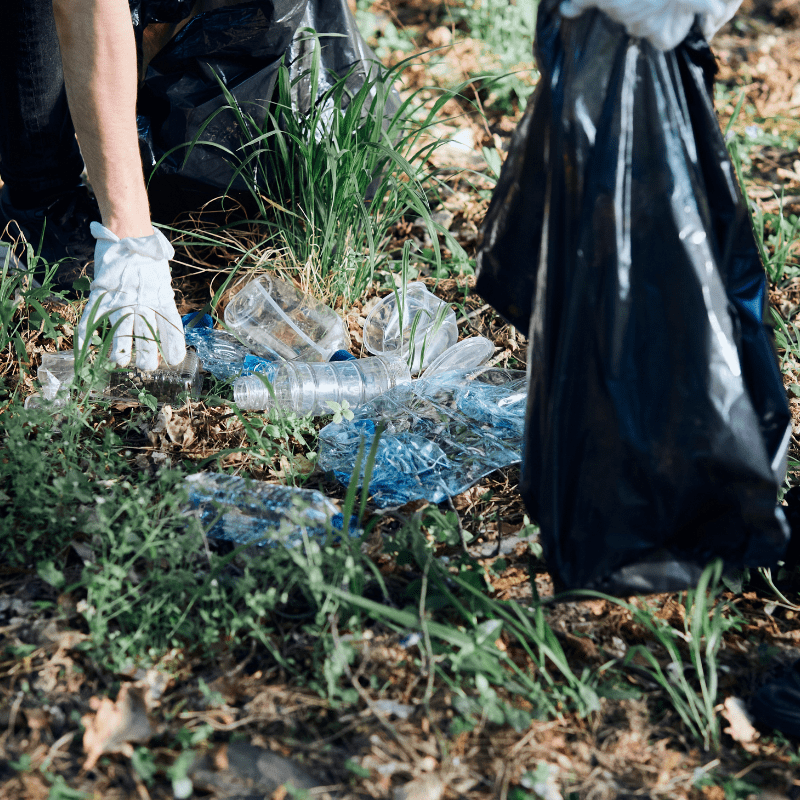What are the Environmental Impacts of Bottled Water?

Water is a fundamental human need. For many, the convenience of grabbing a bottle of water from the store shelf is a daily practice. Even businesses throughout South Texas rely on plastic 5-gallon jug coolers, but at what cost? While bottled water seems convenient, it carries with it a heavy environmental price. So, come along with Aqua Clear Water Solutions in McAllen, TX, as we dive into the impacts of bottled water to help you understand its impacts and the need for sustainable alternatives.
A Quick Overview of Plastic Production
Plastic is a man-made synthetic polymer that can take many different forms. The most common type of plastic used for commercial water bottles is polyethylene terephthalate (PET). PET plastic is created by combining crude oil with other chemicals to form a liquid base which then goes through a reaction process to create pellets. These pellets are heated up and later extruded into shapes like bottles or jugs.
How Plastic Bottles Impact the Environment
Plastic bottles are nearly everywhere, and they’re convenient in nearly every situation. However, what’s not convenient is their impact on the environment. Let’s take a look at just a handful of ways our planet is suffering because of plastic bottles.
1. Depletion of Natural Resources
The primary component of bottled water is, unsurprisingly, the water itself. Many companies source water from natural springs or aquifers, leading to the potential depletion of these essential sources. As these sources are over-extracted, it can lead to reduced water availability for nearby communities and damage to local ecosystems.

2. A Large Carbon Footprint
Producing bottled water is not just about extracting water from the source. The entire process – from purification, bottling, and packaging to the transportation of the final product – emits greenhouse gases. In fact, it’s estimated that the total energy required for the production of bottled water is up to 2,000 times the energy required to produce tap water.

3. Plastic Pollution
While PET is recyclable, the sad reality is that most plastic bottles end up in landfills, oceans, and other parts of the environment. These discarded bottles contribute to the ever-growing plastic pollution problem, impacting marine life and entering our food chain. Moreover, plastic bottles take hundreds of years to decompose, causing long-term environmental damage.
How Can You Reduce Your Plastic Use?
One way to reduce your plastic use is to start using a reusable water bottle. Reusable bottles are typically made of metal or glass and can be used over and over again without being thrown away after a single use. Furthermore, they usually come with insulation which helps keep your drinks either hot or cold.

You can also switch from using plastic bags to more sustainable options such as cloth, paper, or even biodegradable bags. Not only are these choices better for the environment, but they’re also usually cheaper than buying disposable plastic bags at the store.
Another great tip is to shop in bulk whenever possible. Buying loose fruits and vegetables instead of those pre-packaged in plastic containers will significantly reduce your plastic consumption. Additionally, you can bring reusable containers when shopping for other items like grains, nuts, dry herbs, etcetera.
Bringing your own coffee mug or thermos to work/school instead of opting for disposable cups is another way to reduce plastic usage. Many cafés offer discounts if you bring a reusable cup and some even provide their own mugs that you can purchase at a low cost.
Finally, avoid products that contain microplastics (tiny pieces of plastics) since they pollute our oceans and rivers when washed down the drain after use. Microplastics are found in many everyday items like toothpaste, exfoliators, and face wash so make sure you always read the ingredients carefully before purchasing any product!
Bottleless Water Cooler System: A Game-Changer from Aqua Clear Water Solutions
In the midst of growing environmental concerns, solutions like the bottleless water cooler system from Aqua Clear Water Solutions emerge as a beacon of hope. Instead of relying on pre-packaged water bottles, these systems connect directly to your existing water supply here in South Texas, purifying and cooling the water on demand.
The benefits are multifold:
- Reduction in Plastic Waste: As the need for single-use plastic bottles is eradicated, this system directly contributes to a significant reduction in plastic waste.
- Cost-Effective: Over time, using a bottleless water cooler proves to be more cost-effective than continuously purchasing bottled water.
- Clean and Fresh: The water is purified using advanced filtration methods, ensuring that you get clean and fresh-tasting water every time.
- Convenient and Safe: No more storing bulky water bottles. Plus, there’s a reduced risk of contamination as water is sourced and purified directly from the tap.
Get Cost-Effective Drinking Water in South Texas
While there’s no denying the importance of access to clean drinking water for businesses and residents throughout South Texas, it’s vital to weigh the environmental and economic costs of our choices. Bottled water might offer convenience, but the damage to our planet and its natural resources is undeniable.
It’s time to make informed choices and opt for sustainable alternatives. The bottleless water cooler systems from Aqua Clear Water Solutions stand out as a practical, environmentally-friendly solution that doesn’t compromise the quality or taste of your drinking water.
We all have a part to play in safeguarding our planet’s future. Let’s prioritize sustainable solutions and contribute to a healthier Earth. If you’re ready to take action and make a change, contact us today.
